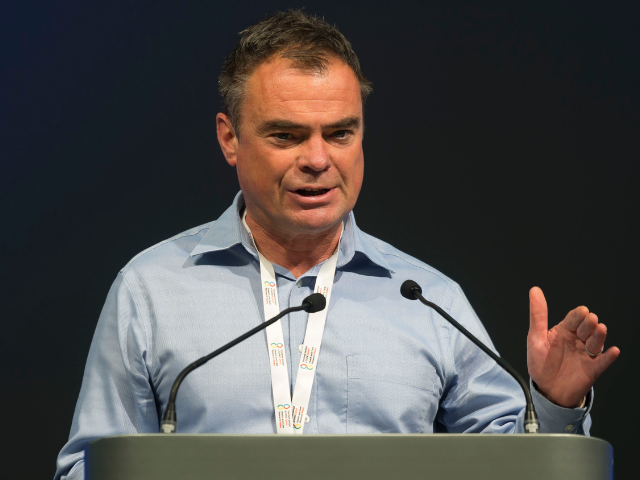
Specialty Lead and team achieve breakthrough in breast cancer care
Internationally acclaimed research, led by Health and Care Research Wales Specialty Lead Dr Rob Jones, has found that incurable breast cancer can be better controlled by combining investigational therapy with standard treatment, which could benefit millions of people.
A breast cancer diagnosis can be devastating, and one in seven women will be diagnosed with the disease in their lifetime. This diagnosis is even more painful if you’re told your cancer is incurable. The FAKTION study could give these patients the hope of controlling their cancer for twice as long.
FAKTION, which was supported by Velindre University NHS Trust, the Centre for Trials Research and the Wales Cancer Research Centre, investigated whether researchers could reverse or delay resistance to hormone therapy in post-menopausal women whose cancer had spread by adding a targeted therapy called Capivasertib to existing therapy.
“The incremental benefit from Capivasertib is highly significant and the trial involves patients with a very common form of breast cancer. In the UK for example 55,000 new cases of breast cancer occur each year and about three quarters are oestrogen receptive positive breast cancers. That equates to millions of patients around the world that potentially are going to get benefits from this breakthrough,” Dr Jones commented.
For this life-changing research the FAKTION study team, which included a Health and Care Research Wales funded research nurse and research fellow, were nominated by Astra Zeneca for the National Cancer Research Institute (NCRI) award for highest impact factor research to have been delivered in the UK over the last five years.
The research has progressed to a phase three trial, where the investigational combination will be tested in a larger number of patients, before any recommendations can be made to take it up as a new standard of treatment on the NHS.
First published: @ResearchWales Issue 7, November 2019